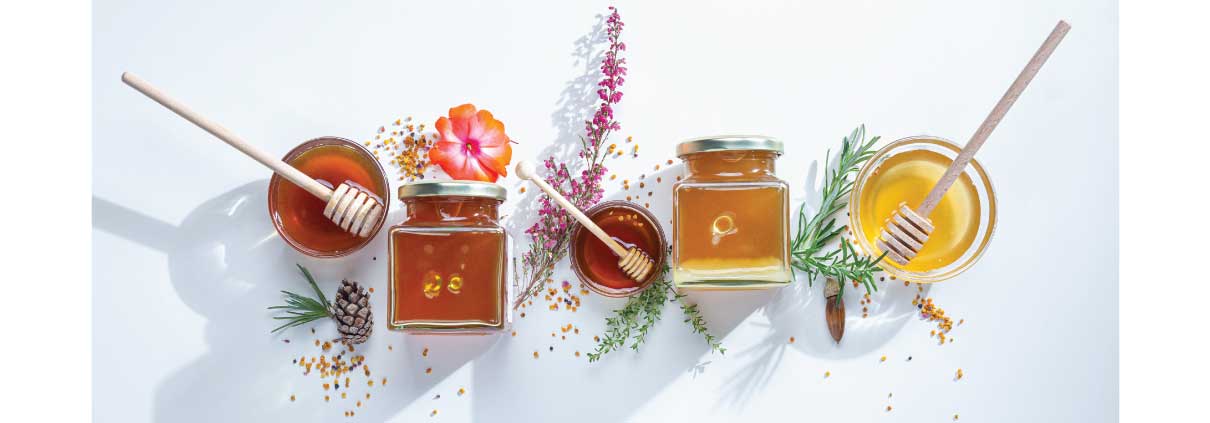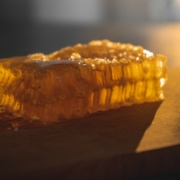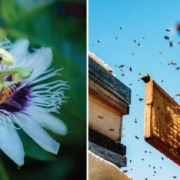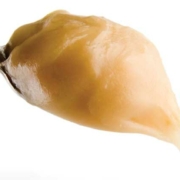The Natural Elixir: Unveiling the Health Benefits of Honey
Reading time: 4 Minutes
Explore honey’s journey from a natural sweetener to a historical remedy and modern medicinal ally, highlighting its nutritional value and diverse applications in food and health.
Disclaimer: Blog posts are for education and entertainment purposes only. Do not consider this to be medical advice.
Honey: More Than Just a Sweetener
When we think of honey, visions of a golden drizzle on toast or in tea (or coffee, in my case) or the sweet goodness of mead come to mind. But honey’s significance extends far beyond its delicious taste.
Let’s Buzz beyond its role as a natural sweetener. This amber liquid, a constant on our tables for millennia, is a health giant, not just a sugar substitute. It’s steeped in medicinal history, too.
The Making of Honey: Nature’s Sweet Factory
It all starts with bees, the busy, tireless workers of nature, collecting nectar from a vast array of flowers and forage. A bee’s work is a complex, natural process that turns nectar into the sweet, thick honey we love. The exact forage of a hive dramatically influences honey’s flavor and properties. Each landscape can paint a very different honey portrait, from clover to buckwheat.
A Historic Panacea: Honey Through the Ages
Let’s travel back to the hieroglyphs in Egypt and to the ancient texts of Ayurveda. Honey wasn’t just food; it was a gift from the gods, a symbol of health and wealth. Its role went beyond sweetening dishes; it was a balm for the body and soul, treating everything from superficial wounds to complex diseases. It wasn’t simply food but a symbol of divine benevolence and a marker of prosperity and well-being. Its legacy appears throughout time and across civilizations.
In Ancient Egypt, Hieroglyphics tell tales of honey, a gift bestowed by the gods. The Egyptians, known for their medicinal knowledge, used honey to treat superficial wounds and skin ailments to complex ailments and as a natural embalming agent.
Ayurvedic Traditions: Ayurvedic practitioners value honey for its ability to enhance herbal preparations and celebrate it for its balancing-restoring properties. Honey is commonly used to treat digestive issues and respiratory infections and as a natural booster for overall vitality.
Across Cultures: This golden elixir’s reputation as a panacea wasn’t confined to Egypt and India. In ancient Greek and Roman texts, honey was recognized for its health-giving benefits and was believed to be a gift from the gods. Greek philosophers like Aristotle and Hippocrates extolled its virtues in their writings, noting its goodness in treating conditions from the common cold to more severe infections.
Beyond Medicine: Beyond its medicinal applications, honey symbolized abundance and health in various cultures. Honey was often used in religious ceremonies as an offering to the gods, symbolizing purity and sweetness. In some traditions, honey played a role in birth and marriage rituals, signifying the start of a sweet and prosperous journey.
Honey in Modern Medicine: The Ancient Future of Healing
In today’s world, science is beginning to catch up with what ancient civilizations have known for millennia: honey is more than just a sweet treat; it’s a potent medicinal instrument. Recent research underscores its therapeutic benefits, making it a subject of interest in modern studies.
Antibacterial and Antimicrobial Properties:
Honey is known for its natural antibacterial qualities. This is primarily due to the presence of hydrogen peroxide and its low pH levels. Studies have shown honeys effectiveness in fighting bacteria, making it a natural alternative for wound treatment and infections.
Anti-inflammatory and Antioxidant Effects:
Honey is rich in antioxidants that help combat inflammation and oxidative stress. This aids in general health and reduces the risk of chronic diseases.
Cough Suppressant and Immune Booster:
Honey has long been known for its ability to soothe soar throats and calm coughs. In fact, it frequently outperforms its over-the-counter pharmaceutical counterparts. Modern medicine has come around to agree with this folk remedy. Some studies suggest honey’s immune-boosting properties can enhance the body’s natural defenses.
Nutritional Profile of Honey: What’s in this Liquid Gold?
Honey isn’t just a simple sweetener. Its intricate composition sets it apart from other sweeteners, offering a range of health benefits.
- Natural Sugar and Calories:
Honey is composed of natural sugars, primarily glucose and fructose, which provide a quick energy source. - Vitamins, Minerals and Antioxidants:
Honey contains trace vitamins and minerals, including Vitamin C, Calcium, and Iron. Its antioxidant qualities are noteworthy, with compounds like flavonoids and phenolic acids playing a crucial role. - Glycemic Index (GI):
The glycemic index of honey varies but is lower than processed sugar. This makes it preferable for a gradual increase in blood sugar levels, but diabetics should still use caution.
Honey in Diet and Lifestyle: Sweetening the Deal
Honey isn’t just for tea and toast. It’s a culinary shapeshifter, enhancing everything from yogurts to meats with its unique, delicious flavor. Honey can be found in recipes from smoothies, honey-glazed nuts, and unique cocktails. Honey has a place in cosmetics, face masks, and hair treatments. Honey is the Queen where Mead is concerned as well!
Precautions and Recommendations: The Sweet Truth
Honey is fantastic but comes with a caution label, too. Honey is sugar; thus, moderation is key. Too much of a good thing is still too much. Honey is also a potential allergen and shouldn’t be enjoyed by children under a year old as it can, on very rare occasions, contain botulism spores, which could pose a threat of food poisoning to the very young.
Quality matters with honey. Honey directly from your local beekeeper is ideal. The closer to the hive, the better. This honey will contain nutrients and micro goodness, whereas processed honey may not.
Conclusion: A Toast to Honey
So, here’s to honey! More than just a culinary delight, it’s a testament to nature’s ability to provide us with a nourishing and healing elixir. From its historic role as a powerful remedy to its recognition by modern medicine to its place in our tea, on our toast, and naturally, in our mead, it’s not just added sweetness; it’s a golden drop of goodness brought to us by the ladies of the hive!





